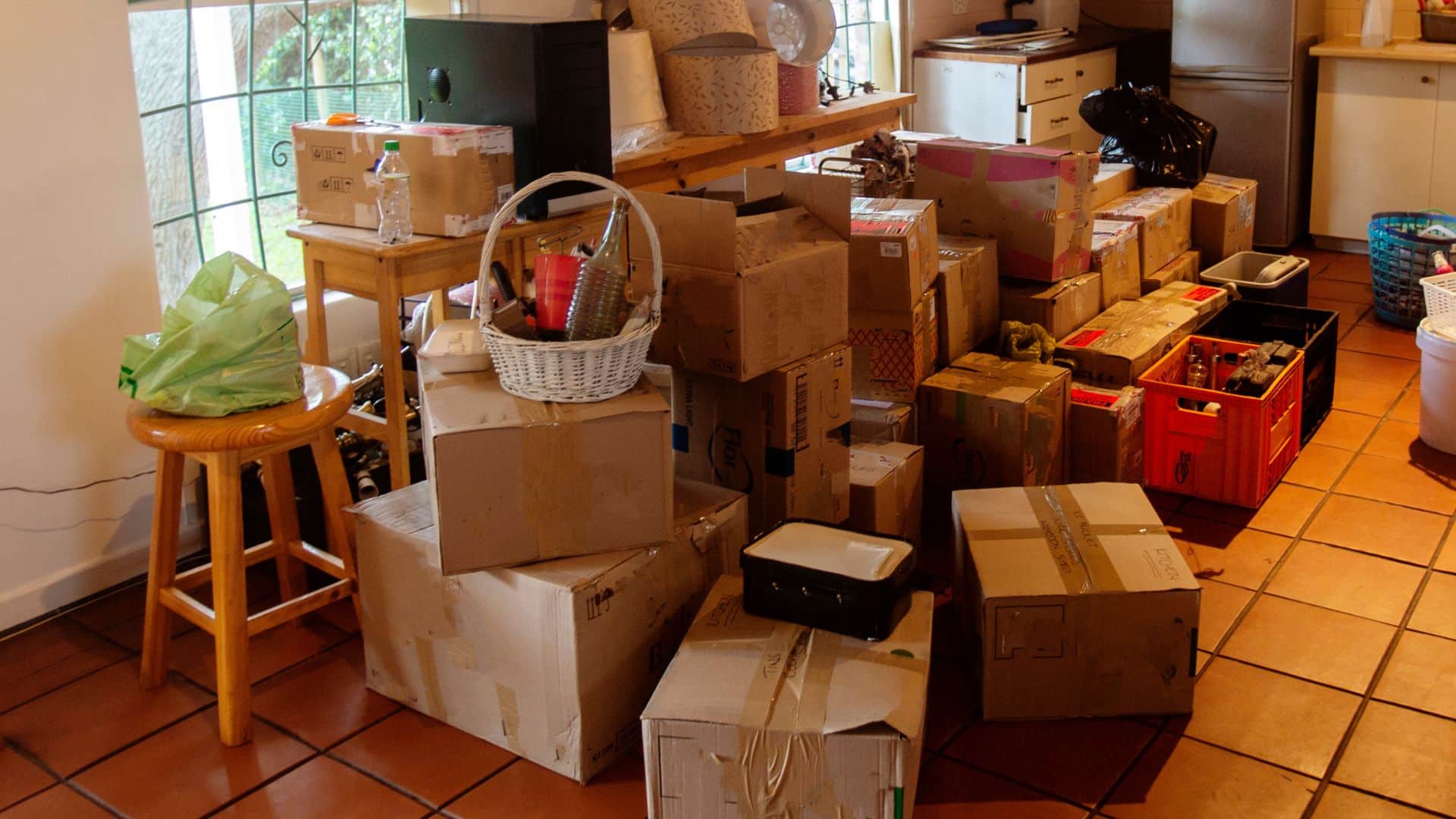It is hard on teens when families move to cities far away. What happens when you must move to a new country, again and again?

Packed boxes in a house. Credit: Brazzo/Getty Signature Images
This article, by high school student Marta Jansone, was produced out of News Decoder’s school partnership program. Marta is a student at the European School of Brussels II, a News Decoder partner institution. Learn more about how News Decoder can work with your school.
This story won an honorable mention in News Decoder’s 14th Storytelling Contest.
I was nine when my parents told me to pack my bags.
I would be leaving Latvia, leaving everything I knew behind and entering the completely different culture, climate and society of Tajikistan. I would later go on to “jump” through various countries including Russia and Belgium. I don’t think that at the time I fully realized what an experience this would be for me.
At first, we moved countries due to my dad’s job, but later we were forced to move due to political reasons. There is an increasing number of people, among them families, that are moving abroad, taking their kids along.
Karina Hasegawa has been moving since the age of one.
“I think, while being a teenager, it’s important to stay in one place and develop as a person within one community, rather than switching cultures and languages,” Hasegawa said. “Especially being mixed, I felt like I belonged to neither of my cultures. Moving to a third culture, I felt like I was in many communities but at the same time part of none. Like I wasn’t Japanese enough for Japanese people and not Russian enough for Russian people.”
Karina said that moving provided opportunities and experiences she wouldn’t have if she had stayed in one place. “And in the end I think that the positives outweigh the negatives,” she said.
Different places mean new languages and friends.
Lise Marcillon has moved between Vietnam, Russia, Tajikistan and France since the age of 10.
“I think [moving] made me used to change a lot, made me adapt a lot to the point where I would adapt too much,” she said. “I wouldn’t tell people what I want to do, I would say — no let’s do it your way.”
Lise said that she’s happy she was able to travel to so many countries. “I like to think that I’m open minded because of that, where difference doesn’t scare me at all, it’s normal,” Marcillon said.
There are both pros and cons moving across borders. Arriving at the new school in Dushanbe, nervously wringing my hands as I walked into the student-filled classroom was not a pleasant experience. This would be the beginning of my constantly changing social life. Always having to leave my newfound friends behind is something that was incredibly difficult for me.
I remember clearly the evening I heard that we’d been given a week to move out of Russia, for reasons connected to politics. It was the second country we had moved to.
This was something my mom told me on a seemingly regular Friday night. I didn’t expect it would have ended in me frantically texting my friend, asking her if we could meet for one last time before I left for good.
What it means to have a home
Luckily, I have kept in contact with many of the friends I’ve met abroad, video calling one another and even meeting up in person. Having friends from, quite literally, all over the world is not something I would have experienced if I’d never left Latvia.
However, due to never truly settling down in one place, I began trying to understand where my real “home” is, or what the term even means anyway. I’d always thought that Latvia, the country I was born in, was my home, and still do, but there are times when I feel like I don’t necessarily belong in one place, but rather a mixture of many.
Despite the drawbacks of having spent my childhood in this way, there are quite a few upsides as well. I will always truly be grateful for having been able to see different cultures and ways of living, meeting people from different places and learning about new ways of life, which has widened my perspective immensely.
Of course, I miss certain things from Latvia, such as eating Latvian food like rye bread and “Pols” ice cream, being surrounded by lots of people that speak Latvian and visiting my grandma for Christmas. But I found experiences that I enjoyed in the places I visited, whether it be spending the white, snowy winters in Russia, trying the sweetest watermelon I’ve ever tasted in Tajikistan or visiting the numerous art galleries in Belgium. I’ve always been able to find something that enthralled me in each country.
Even if I felt as if I was alone at times in my feelings of instability and helplessness, I am not the only teenager who has experienced moving abroad often.
It may feel lonely at times or like nobody else understands you, but knowing that there are people out there and around you who actually feel the same and go through the same situations can be comforting.
Questions to consider:
- What are some reasons families have to move from one country to another?
- What are some things that make moving to a new country difficult?
- If you were to move to a different country, what would you miss about where you live now?

Marta Jansone is a native of Latvia currently residing in Brussels, Belgium. She attends the European School of Brussels II where her favorite subjects include languages and art. Jansome plans to attend an art academy in the future.
